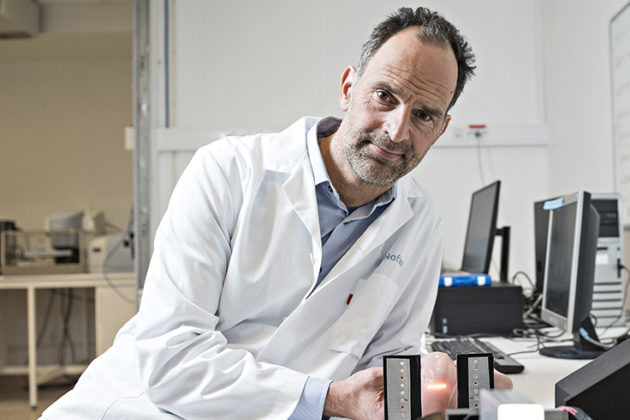DigiFoods
Smart sensor solutions for food quality assessment

DigiFoods centre for research-based innovation (SFI) develops smart sensor solutions for food quality assessment directly in the processing lines, throughout the food value chains. The information can optimize both processes and value chains, and make the food industry more efficient and sustainable.
Start
01. Nov 2020
End
31. Oct 2028
Funded by
The Research Council of Norway
Cooperation
R&D: Sintef, NMBU (Norwegian University of Life Science), Lincoln Institute for Agri-Food Technology, University of Lincoln, Ulm University, Institute of Analytical and Bioanalytical Chemistry and Universitat Politècnica de València. Industrial partners: Tine, Nortura, Prediktor Instruments AS, Norsk Elektro Optikk AS, Camo Analytics AS, Idletechs AS, International Business Machines AS, Norilia AS, Maritech Systems AS, RobotNorge AS, Lerøy Aurora AS, CGI Norway, Biomega Group AS, Nanoplus Nanosystems and Technologies GmbH, MarqMetrix Inc, HOFF SA, Havfisk AS, Saga Robotics, OptoPrecision GmbH, Lerøy Norway Seafoods AS and Intelecy
Project Manager(s):
Results
The centre is led by Nofima, with Sintef Smart Sensor Systems and NMBU (Norwegian University of Life Science) as the major scientific partners.
Developing inline smart, sensor-driven solutions
Food quality varies a lot in colour, shape and chemical composition, and this hampers efficient food processing. The inline measurement of this quality in process is extremely complex and challenging due to the inherent high level of biological variation in raw materials. We will develop advanced sensor solutions based on a fundamental understanding of food science, processing and modern sensor technology, which will allow the food industry to effectively measure and handle these variations in true time. We will also introduce robotics to enable automatic measurements in challenging processes and in the field.
Massive assessment of the essential food qualities throughout the value chains will pave the way for a radical digital transformation of the food production. Based on such quality measures, we will develop novel strategies for process control with the aim of reducing food waste and increasing profitability. We will also study and develop concepts for how large scale quality measurements can be used for
1) support and optimization in primary production, and
2) differentiation of product quality to different consumer segments, with the aim of reducing food waste also in households.
Centre for research based innovation (SFI)
The SFI research centres are The Norwegian research council’s long-term initiative in innovative and strategically important areas.
Nofima is part of the following SFI centres:

New knowledge for innovation in several areas
The raw material costs make up about 70% of the cost of the final food product, so the key to reducing waste and increasing profitability is to control and utilize the raw material variation in the best possible way.
The connection of information from farm/boat to consumer will give us a better understanding of which factors that affect food quality, and this can give us foods of higher quality and a more sustainable food production.
The food industry is the largest land-based industry in Norway, it already relies on a high degree of automation and R&D based solutions and is well positioned to take a leading role in digital food processing. New food sensors and analytical technology will give Norwegian technology companies international competitiveness.
DigiFoods will combine applied and basic research to generate new basic knowledge, evaluate prototype solutions, and create results for innovation in the following core areas:
- Novel sensor systems and food application development
- Integration of robots and food sensors
- Integrated sensor solutions for industrial use
- Analysis and utilization of large-scale process and value chain data
A multi-disciplinary team comprising food companies, technology providers and research institutions is highly motivated to collaborate. The industrial partners will participate in all research tasks, committing essential in-kind contributions to the project.
The centre aims to increase digital competence in Norway through the education of masters and PhD candidates. DigiFoods will function as an innovation hub for food industry, scientific community and technology providers. Development of new in-line sensors can lead to innovation and growth for the food companies and more opportunities in the global marked for all the technology providers.
Updates from the project
Digifoods.no
Publications
Topics
Spectroscopy
Similar projects